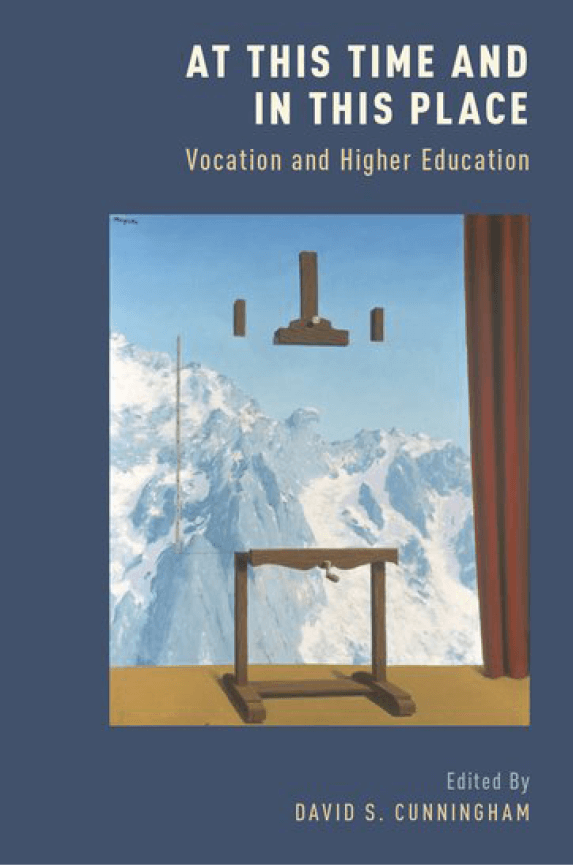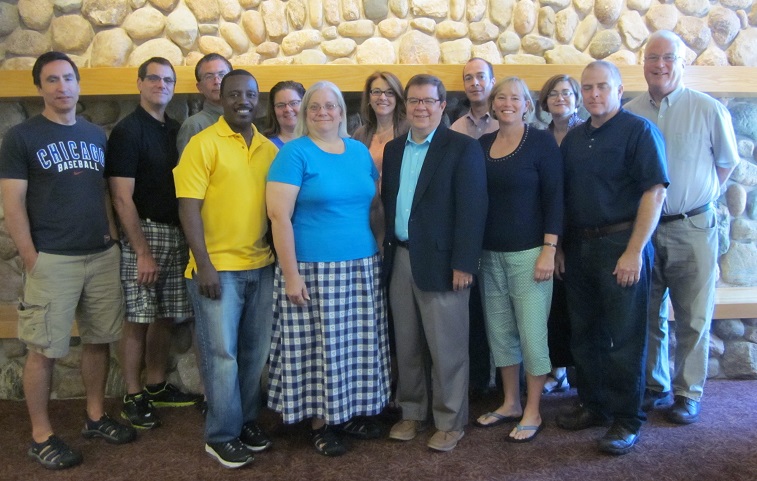Many NetVUE institutions have successfully implemented programs that make use of the language of “calling” and of vocation-related practices to help students think about their futures. Despite the venerable history of the idea of vocation, it faces significant challenges: uncertainty about its meaning and significance; the absence of a clearly developed curriculum and associated pedagogies; and a lack of extensive literature to provide support and resources to the ongoing development of vocation as a focus of academic inquiry and practice.

The first NetVUE Scholarly Resources Seminar sought to address these challenges. Participants drew on multiple theological and philosophical traditions to develop theoretical, analytical, and practical accounts of the role vocational discernment might play in undergraduate education. The group also considered the ways in which the language of vocation may itself function as a pedagogy – a kind of structural scaffolding for students and faculty members who are wrestling with large questions of meaning and purpose.
The work of the seminar was disseminated in a variety of forms. First among these was the publication of a book, At This Time and In This Place: Vocation and Higher Education, (Oxford University Press, 2016). The group also developed other resources, including online materials; this marked the beginning of the NetVUE blog at www.vocationmatters.org. The overall goal of the NetVUE Scholarly Resources Project is the production of knowledge for use by faculty members, staff, and students at the undergraduate level. The seminar members therefore sought to make their work available to NetVUE member institutions and to the wider higher education community.
Vocational Discernment As Pedagogy: Scholars
Quincy D. Brown – Senior Pastor, Snellville United Methodist Church
(During the project: Vice President for Spiritual Life and Church Relations, LaGrange College)
William T. Cavanaugh – Professor of Catholic Studies and Director of the Center for World Catholicism and Intercultural Theology, DePaul University
Douglas V. Henry – Dean of the Honors College and Associate Professor of Philosophy, Baylor University
Thomas A. (Tal) Howard – Professor of Humanities and History and holder of the Duesenberg Chair in Christian Ethics, Valparaiso University

(During the project: Associate Professor of History, Gordon College)
Kathryn (Kit) Kleinhans – Dean, Trinity Lutheran Seminary at Capital University
(During the project: Professor of Religion, Mike & Marge McCoy Family Distinguished Chair in Lutheran Heritage and Mission, Wartburg College)
Charles R. Pinches – Professor of Theology and Religious Studies, The University of Scranton
(During the project: also Chair of the department)
Darby K. Ray – Donald W. and Ann M. Harward Professor of Civic Engagement and Director, Harward Center for Community Partnerships, and Professor of Religious Studies, Bates College
Caryn D. Riswold – Professor of Religion, Mike & Marge McCoy Family Distinguished Chair in Lutheran Heritage and Mission, Wartburg College
(During the project: Associate Professor of Religion and Chair, Gender and Women’s Studies, Illinois College)
C. Hannah Schell – Program Officer, Division of Education, National Endowment for the Humanities
(During the project: Professor of Religious Studies, Monmouth College)
Paul J. Wadell – Professor Emeritus of Theology and Religious Studies, St. Norbert College
Stephen H. Webb (1961-2016) – During the project: Professor of Religion and Philosophy, Wabash College
Cynthia A. Wells – Professor of Higher Education, Director of Faculty Development, and Director, Ernest L. Boyer Center, Messiah College
Contact Information
For additional information about the NetVUE Scholarly Resources Project, please contact Erin VanLaningham, the project’s director, by email at evanlaningham@cic.edu or by phone at (563) 588-7200.

To report a technical problem with the website, or to offer suggestions for navigation and content issues, please contact Alex Stephenson, NetVUE communications coordinator, at astephenson@cic.edu.



